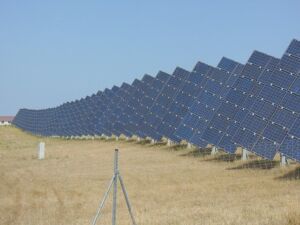News
Solar power generating record levels of electricity in Denmark
This article is more than 2 years old.
The renewable energy source is expected to cover 10 percent of the country’s overall electricity consumption this year

April 2023 was a month for the record books (photo: Pixabay/joseluisv)
Naturally, weather can have a significant impact when it comes to the production of sustainable energy.
And due to the frequency of clouds in its skies, it could be argued that perhaps Denmark isn’t in the best position to capitalise on solar energy.
But thanks to an above average year in terms of sunshine and a below average year relating to temperature, April saw a new record for solar power production.
According to renewables organisation Green Power Denmark, solar panels on rooftops and in fields produced 406 GWh in Denmark last month.
“Solar panels are now contributing considerably to the electricity grid. It’s good for the climate and the consumers,” says Thomas Aarestrup Jepsen, the head of Green Power Denmark.
READ ALSO: Documentary prompts government to improve offshore energy security
Big plans ahead
The energy produced last month was not only a 55 percent increase compared to April 2022, but 40 percent higher than the previous record from June 2022.
The amount of electricity generated equaled the annual electricity consumption of 100,000 homes in Denmark.
Jepsen said that on some days the solar panels produce so much energy that it helps push down electricity prices.
In 2022, solar energy helped cover 6 percent of Denmark’s total electricity consumption – a figure that is expected to increase to 10 percent this year.
Future plans suggest that by 2030, solar panels across the country will cover an area greater than the entire island of Møn.










































